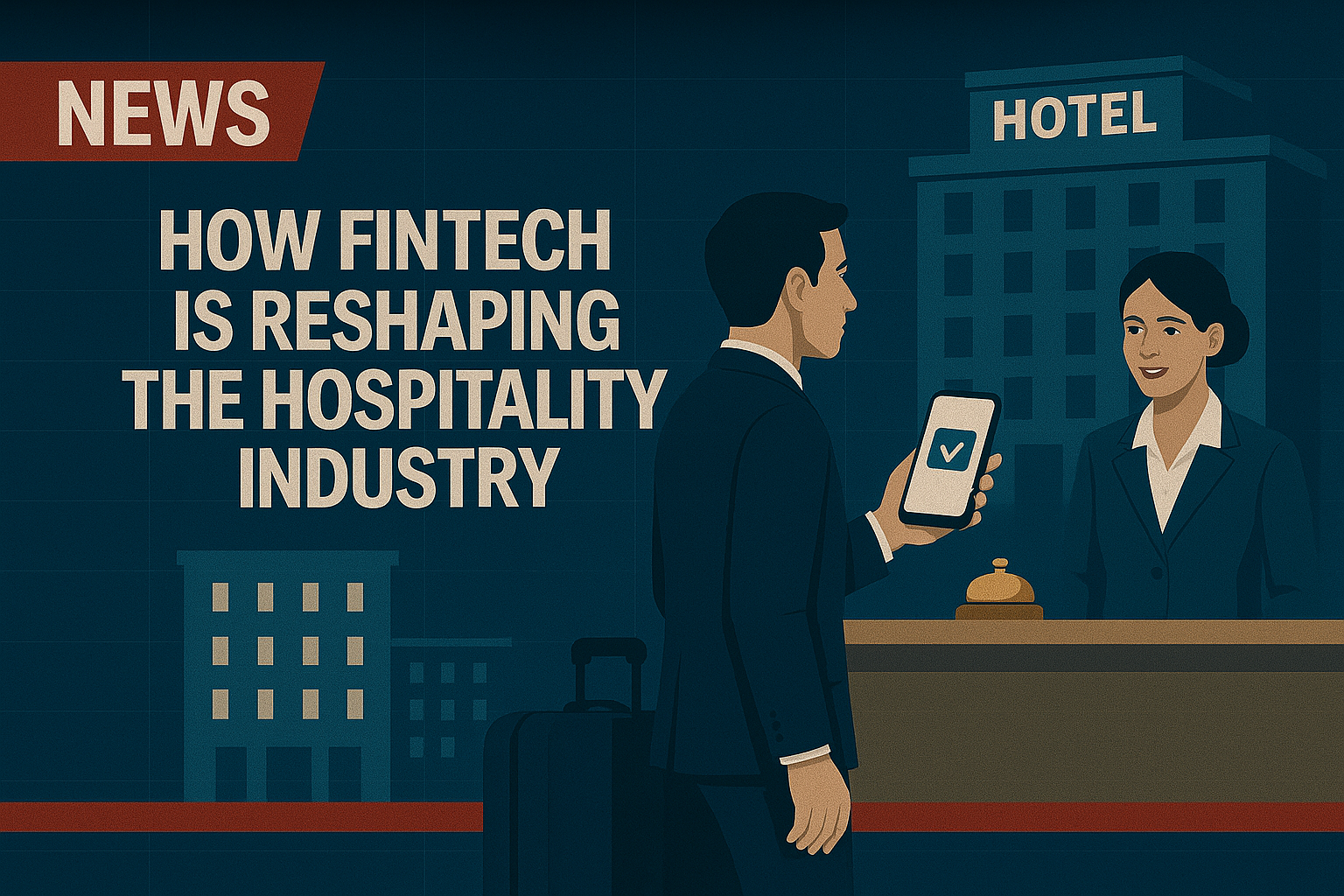The hospitality industry has always been quick to adapt to new trends and technological advancements, and financial technology (fintech) is one of the most disruptive forces shaping the sector today. From seamless digital payment systems to AI-driven financial insights, fintech is enabling hospitality businesses to operate more efficiently, enhance guest experiences, and tap into new revenue streams. This article explores how fintech is transforming the hospitality industry and what it means for finance professionals, with a particular focus on how education prepares future leaders in hospitality finance.
The Rise of Fintech in Hospitality
The global fintech market is expected to reach USD 1583.05 billion by 2033 from USD 209.74 billion in 2024, growing at a CAGR of 25.18% during the forecast period. This rapid growth reflects fintech’s increasing integration into industries like hospitality, where the demand for innovative financial solutions has never been higher.
The hospitality industry, traditionally seen as cash-intensive, is now adopting digital payments, contactless check-ins, AI-driven revenue management, and blockchain-based solutions to streamline operations, reduce costs, and enhance security. These advancements are not only improving business operations but also enhancing customer satisfaction, as guests demand seamless, secure, and more personalized experiences.
Key Areas Where Fintech Is Impacting Hospitality
1. Digital Payments and Mobile Wallets
One of the most noticeable impacts of fintech in hospitality is the adoption of digital payments. Mobile wallets like Apple Pay, Google Pay, and newer cryptocurrency solutions are now standard in the industry. These solutions allow guests to pay for services directly through their smartphones, avoiding the need for physical cards or cash. This shift reduces transaction times, increases payment security, and enhances the overall guest experience, making it easier for travelers to manage their payments and budgets. The global mobile wallet market is expected to reach $7,580.1 billion by 2027.
2. AI and Machine Learning for Dynamic Pricing
AI-powered fintech solutions are revolutionising how hotels manage pricing. By analyzing a variety of data—ranging from local demand to competitor pricing and even weather forecasts—these tools help adjust room rates in real-time to maximize revenue. This dynamic pricing model ensures that hospitality businesses can stay competitive and increase their profitability by optimizing rates according to demand fluctuations.
3. Blockchain for Secure Transactions and Loyalty Programs
Blockchain technology is gaining traction in hospitality as a means to ensure secure, transparent transactions. Blockchain can be used for everything from processing payments to managing loyalty programs, providing a decentralized ledger system that minimizes fraud and increases trust.
For hotels, blockchain allows for more efficient and secure payment processes, while loyalty programs based on blockchain can offer better transparency and value for both businesses and guests.
4. Fintech Solutions for Streamlining Financial Operations
Fintech tools are also streamlining back-office financial operations within hospitality businesses. Automated accounting systems, payroll processing, and expense tracking software reduce the administrative burden on finance teams, allowing them to focus on more strategic tasks.
This leads to cost savings, reduces human error, and improves compliance by ensuring accurate and timely financial reporting.
Emerging Opportunities for Finance Professionals in Hospitality
As fintech continues to reshape the hospitality landscape, new roles and opportunities for finance professionals are emerging. Here are some key roles and skill sets in high demand:
1. Fintech Specialist for Hospitality
- Role Overview: These professionals are tasked with identifying and implementing the right fintech solutions for hospitality businesses. Their responsibilities include evaluating new payment systems, integrating AI-powered pricing tools, and exploring blockchain for secure financial transactions.
- Skills Needed: Strong understanding of fintech solutions, project management, and the ability to integrate technology with traditional hospitality operations.
2. Revenue Manager with Fintech Expertise
- Role Overview: Revenue managers in hospitality are increasingly relying on AI-driven tools to manage pricing strategies. These professionals need a deep understanding of both finance and the latest fintech innovations to maximize hotel revenue through dynamic pricing.
- Skills Needed: Expertise in financial analysis, pricing strategies, and familiarity with machine learning tools used in revenue management.
3. Blockchain and Cryptocurrency Advisor for Hospitality
- Role Overview: As blockchain adoption grows, experts in cryptocurrency and blockchain are becoming valuable assets to hospitality businesses. They help implement secure blockchain-based payment systems, loyalty programs, and even cryptocurrency acceptance.
- Skills Needed: Knowledge of blockchain technology, cryptocurrency trends, and hospitality-specific applications.
Salaries for the above roles are $95,000-$120,000 annually.
Evolving Educational Pathways
As fintech continues to disrupt the hospitality sector, it’s essential for finance professionals to adapt to these technological advancements. Specialized education plays a crucial role in preparing the next generation of leaders for the challenges and opportunities fintech brings to the hospitality industry.
Leading hospitality schools such as Glionoffer comprehensive programs in hospitality management, real estate, and finance that equip students with the skills needed to understand and leverage fintech solutions in the hospitality sector. By combining traditional hospitality education with cutting-edge financial technology, courses prepare students for roles in fintech integration, digital payments, AI-driven revenue management, and blockchain solutions. With real-world applications and a focus on practical experience, leading university courses ensure that graduates are ready to drive financial innovation within the hospitality industry.
Conclusion
Fintech is changing the hospitality industry, from seamless digital payments and AI-driven pricing to blockchain-enabled security. As the industry adapts to these changes, finance professionals who understand both the hospitality business and fintech will be in high demand. The opportunities in this space are vast, offering roles that cater to emerging technologies and complex financial strategies. By embracing these trends and pursuing specialized education, finance professionals can position themselves as leaders in this exciting and rapidly evolving field.





